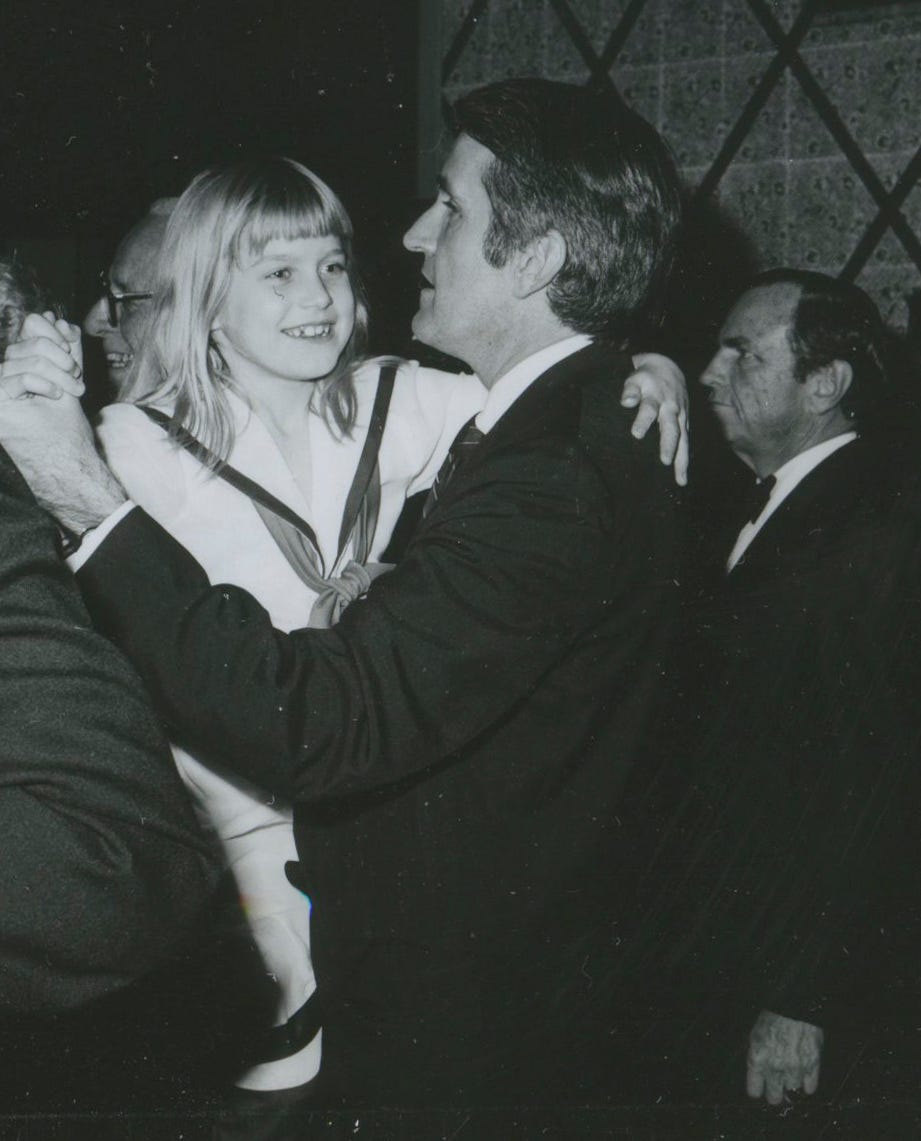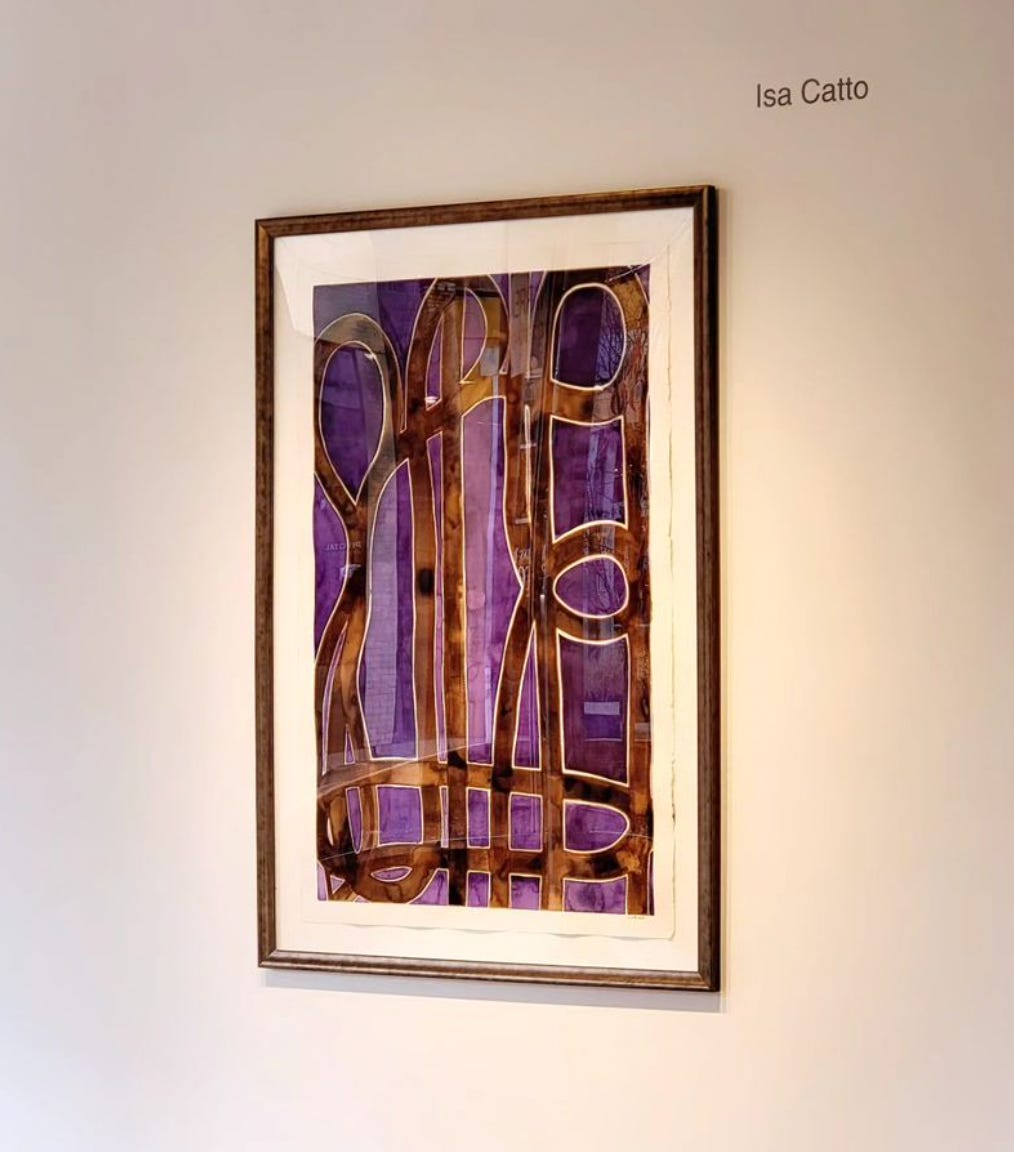I think I can conclude that life, as it passes before our eyes is a creative force -- that one thing is put usefully upon another -- that what we lose in one exchange is more than replenished by the next--that it is only us, only our pitiful misunderstanding that makes for crookedness, darkness and anger. JOHN CHEEVER
An unexpected winter storm closed the high mountain passes last night, forcing me to abandon attending my group show opening at Michael Warren Contemporary gallery in Denver. I love attending art openings and relish the buzz and chatter. I also enjoy meeting a different swath of the artistic community and plunging into a bigger network. And yet I’m a classic introvert who has to “recover” after each large social interaction. I don’t volunteer much initially —I’d rather ask questions than field them —so I still struggle to talk about my craft, and myself, to those who are not intimates. I have a slow rate of reveal. I’ve worked hard over the years to be a high-functioning introvert and know my limitations. And my strengths.
I thank my father for giving me the basic social skills to cope in a world slanted toward the extroverts among us. He was a diplomat and classic extrovert, and I, like my mother, am a classic introvert. My father fretted about my tendency to withdraw and my sensitive nature. Maybe he worried that I’d be the offspring who would wind up living at home, drifting around in broad daylight wearing nothing but a worn terry cloth bathrobe and trailing self-belt, mesmerized by odd little hobbies like trimming bonsai. This was decades before
shed light on our world and celebrated introversion.“Introverts, in contrast, may have strong social skills and enjoy parties and business meetings, but after a while wish they were home in their pajamas. They prefer to devote their social energies to close friends, colleagues, and family. They listen more than they talk, think before they speak, and often feel as if they express themselves better in writing than in conversation. They tend to dislike conflict. Many have a horror of small talk, but enjoy deep discussions. SUSAN CAIN
Because of my father’s profession, my parents were constantly out in the evenings or entertaining at home. Their lives were always in motion, and quiet was rarely attainable. My introverted mother paid the price for their frenetic pace and sought a quieter life when they retired. As for me, my father came up with a plan. At their next dinner party, I would launch myself pell-mell into the swells and practice overcoming what was then called shyness. I was petrified. What could I possibly offer to the conversation? Their friends were journalists, diplomats, intellects, and statesmen.
“What am I supposed to say?” I wailed, pleading for mercy.
My father’s advice was sound: “Most people are completely self-absorbed. All you have to do is ask them about themselves. As they unwind their story, you can mentally start lining up questions to keep up the momentum but don’t make it look like you are on the offensive with too many rapid-fire inquiries. There has to be an easy cadence. The rest is simple. You just have to pray that they have something interesting to say.”
I was in more trouble than I realized.
After several false starts, mild threats, and panic attacks, I was ready to make my debut as a masquerading extrovert.
Our living room was perfect for entertaining. It was seventies modern and a welcome addition to the rambling, decaying farmhouse. The architecture was so distinct from the rest of the house that it felt like a casually docked spaceship was attached to its aft. Three enormous glass windows dominated the large room, and the whole space seemed suspended among eighty-five-foot tulip trees. The window ledges were wide enough to sit on, and I loved pressing my face against the glass to “lean” into the green of those enormous trees.
I eased in like a sharpshooter and started to map out my target. The room was humming and the waiters were swerving around several clusters of people. I spotted my beautiful mother, bent over, arms crossed, listening to a small and animated man. That scenario didn’t look promising. The obvious choice was the group that was shaking with laughter; someone was telling a good tale, so I decided to move in.
Unfortunately, my father had not yet warned me about breaking a circle. When I squeezed into the gap, the laughter and conversation abruptly stopped. I took full note of who was in the circle, but still choked out a self-introduction. Save for a smile or two, I was not well received. A familiar cold panic seized me and I fled to our adjacent wood-paneled library.
I had interrupted Dr. Henry Kissinger, Kay Graham, the famous and formidable owner of The Washington Post, Lane Kirkland, the head of the AFL-CIO, and a rather peeved-looking man, who I later learned was Zbigniew Brzezinski. In all fairness, that was just Brzezinski’s look, and he was always pleasant to me at subsequent parties.
When I introduced myself to Dr. Kissinger and put out my hand, he glowered and did not put out his. I was barely ten.
I found my favorite hiding place behind a heavy velvet curtain in a window seat and wept. As I was preparing a retreat to my room I heard a throat being cleared. I froze.
Then I heard: “I say.” I was cornered. The windows were fixed; single-paned and latticed, so there was no escape hatch. (When trouble brewed, I was adroit at climbing out of windows.)
“I say,” came the patrician accent once more.
I had no choice but to peer around the curtain. There was a trim, blonde, and balding man standing there, and he reminded me of Bing Crosby in High Society. He introduced himself. “I’m Rowland Evans but please call me Rowlie. “
“Are you Isa?” he continued, “I was wondering what the youth of today think of Spiro Agnew?”
I stared at him. Spiro Agnew? I knew Spiro Agnew was a political disgrace, but beyond that, Mr. Agnew didn’t much register.
“I never think about Spiro Agnew,” I stammered.
“Excellent,” he purred, “Neither do I.”
“May I sit down?” I nodded and he pushed aside the heavy curtain and sat down, carefully crossing his legs, shimmering drink in hand.
“Listen kiddo, I saw what you did next door, and that took real pluck. Kissinger is a pompous ass and always will be. I ignore him and you should too. And anyone who cannot see that you will be an exceptional contribution to your generation is a fool.”
Pompous ass? Exceptional contribution? This was fantastic stuff, and it was coming from an adult. He offered to be my wingman and we returned to the scene of my humiliation. He shepherded me around, introduced me as an up-and-coming star, and restored my courage to mingle that evening and beyond.
Our culture made a virtue of living only as extroverts. We discouraged the inner journey, the quest for a center. So we lost our center and have to find it again. ANAIS NIN
Age grants us the ability to settle into ourselves. I now embrace my introversion but am grateful to extroverts like my father and Rowlie who gave me the tools to maneuver in an extroverted world. And helped me to enjoy it. In measured doses that is.






What a wonderful story, Isa. Having married into your formidable family, and being an introvert myself, I was always a bit intimidated at those dinner parties. God bless Rowlie.
What a great story. Thank you for illuminating a part of me as well. I’ve been masking as an extrovert my whole life. Wonderful how you describe it.